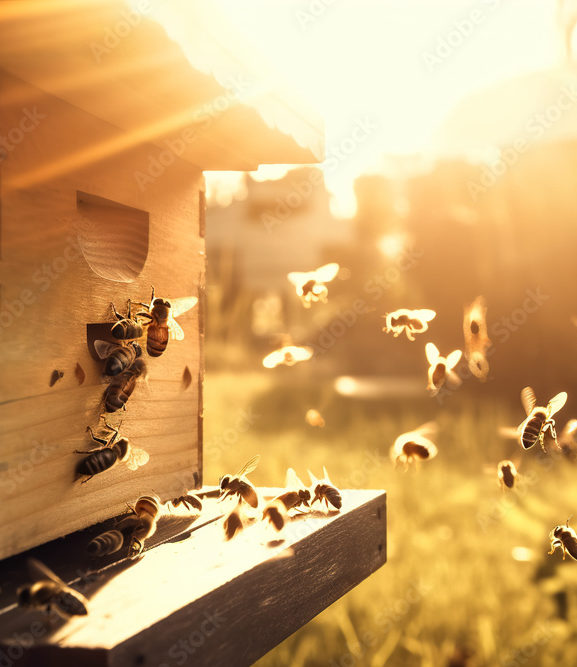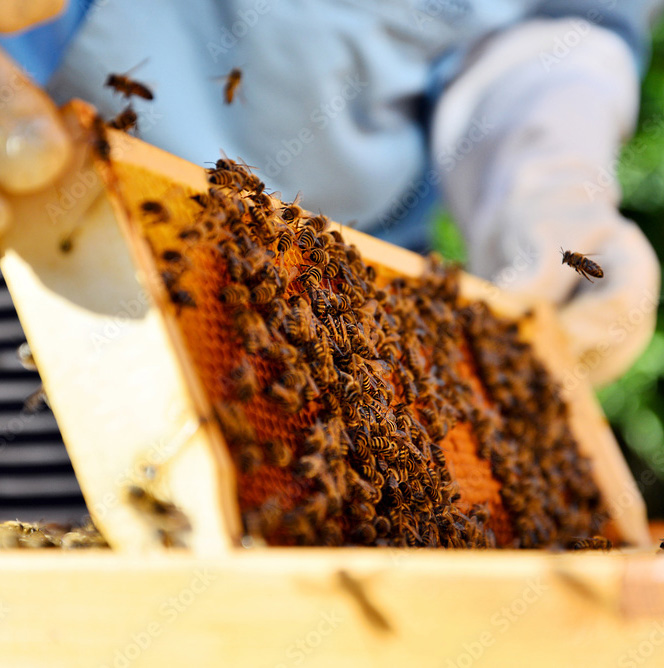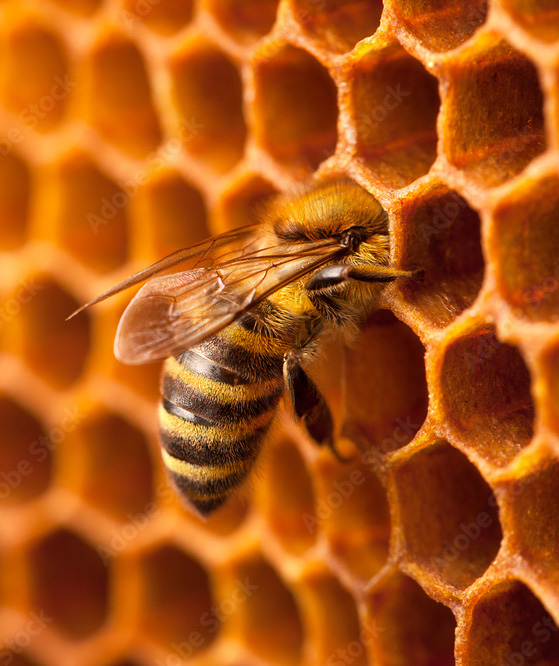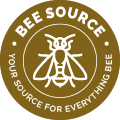
Layens Hives are superior. Here’s why.
They mimic beehives in tree hollows and rock outcroppings found in nature.
Layens hives with deep Layens frames mimic wild natural hives found in nature. Per scientific research, bees prefer boxes with a 10–15-gallon capacity, with more space vertically than horizontally to store ample storage of honey and pollen stores above the brood. Layens hives offer this!
Layens hives have the deepest frames of any other manufactured hive. The deep Layens frame allows the queen to build her preferred brood pattern, in her preferred basketball shape and size, with room above the brood for ample stores of pollen and honey to feed the colony, promote rapid buildup of new bees, and overwinter successfully.
Bees in Layens hives, on Layens frames, make more Propolis than in Langstroth hives (more Propolis means more natural disinfection for the hive).
They’re easier on beekeepers.
- Lower maintenance with less need for “skilled” beekeeping knowledge to manage them.
- Easier to inspect, with less intrusive and less frequent inspections needed.
- No need to feed the bees because deep Layens frames allow the queen to build her brood pattern in her preferred basketball sized and shaped way, with ample stores of honey and pollen above the brood for the bees to eat.
- Can remove frames with honey without disturbing the colony.
- Less lifting: Once a horizontal hive is set in place, you don’t need to move it again. No need for adding or removing supers.
The Layens frames we sell have 4 wooden bars with 7 wires impregnated with wax, ready for the Queen to build her brood. There is no need for any rotation of these frames when maintaining the hive.


They’re better for bees.
Less intrusive and fewer inspections needed, leading to less defensive response from the bees (no need for protective bee gear for simple inspections)
Frame design is more like wild beehives in nature, allowing space for all the natural defenses in a hive, that you don’t need chemical treatments.
Commercial bees are treated with antibiotics. If antibiotics become unavailable or difficult to access, the commercial bee industry will collapse because the treated bees will not survive without continued treatment. This would drastically reduce the supply of fresh produce for human consumption.
Commercial beehives are also treated with pesticides/miticides to keep hive beetles, Varroa mites, and wax moths away. Because Layens frames allow for more Propolis stores, the bees natural antibiotic, Layens hives are self-treated to keep pests and harmful bacteria away.
